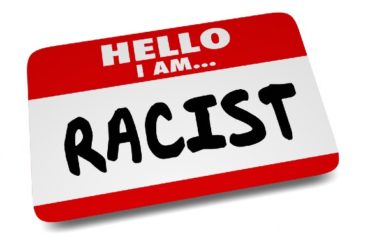
An Australian college lecturer claims having a racial “type” when it comes to a romantic partner is “a form of racism we rarely speak about.”
Writing in The Conversation in what sounds like a final paper for an Oppression Studies class, the University of Southern Queensland’s Aaron Teo uses the Aussie comedy “White Fever” — in which an Asian woman has a “fetish” for white men — to make his case.
The show’s star plays an Aussie Korean adoptee who, Teo says, “embarks on a tumultuous journey of coming to terms with her internalised racism.”
According to Teo, the topic of internalized racism — “a racial minority’s tacit acceptance of negative understandings or stereotypes about their own racial group” which has “close links with white supremacy and colonisation” — is “largely omitted” from discussions. (This would be news to American academics.)
Eventually “White Fever’s” protagonist comes to grips with her Asian roots, and “unlearns” her internalized racism, but not before it causes her to “elevate” white people on the “racial hierarchy” by doing things like denigrating other Asians and refusing to speak her native tongue.
Teo (pictured) says internalized racism results in minorities suffering from “psychological distress” such as depression, anxiety, and “maladaptive coping behaviours.”
In Asian populations, it can “fracture communities from within” when individuals “uphold and reinforce harmful stereotypes on others.”
On that, Teo provides a link to his own study titled “Autoethnographically Interrogating School-Based Anti-“Asian” Racism in Post(?)-Pandemic Times: An AsianCrit-Informed Composite Palimpsest.”
MORE: Black prof: ‘Internalized racism’ made him blame ‘black youth culture’ for community’s ills
[I]nternalised racism has broader harmful effects in the form of anti-Blackness, which encompasses negative opinions and unfair treatment of Black people. In an Australian context this manifests as anti-Indigeneity. …
For Asian Australians and other racial minorities, challenging internalised racism starts with recognising the way in which white supremacy operates.
In an Australian context, it means focusing on First Nations sovereignty as a baseline for addressing broader racial inequity in Australia. This is a crucial first step in disassembling the systems of white supremacy which are responsible for the ongoing displacement and oppression of First Nations peoples and, by extension, of other minorities.
It also means taking an anti-racist stance at home, at work, in the classroom and beyond. It means speaking up, even when it feels uncomfortable.
Teo also reminds white people of their responsibilities, such as “allyship,” knowing they have “privilege,” and “listening non-defensively.”
The curriculum and pedagogy lecturer’s academic bio notes he’s a “first generation migrant settler living on unceded Jagera and Turrbal lands” whose research deals with the “raced and gendered subjectivities of migrant teachers from ‘Asian’ backgrounds in the Australian context, as well as critical pedagogies in white Australian (university and school) classroom spaces.”
MORE: ‘Friends’ co-creator gives $4 million to Brandeis to atone for her ‘internalized systemic racism’
IMAGES: iQoncept/Shutterstock.com; University of Southern Queensland





Please join the conversation about our stories on Facebook, Twitter, Instagram, Reddit, MeWe, Rumble, Gab, Minds and Gettr.